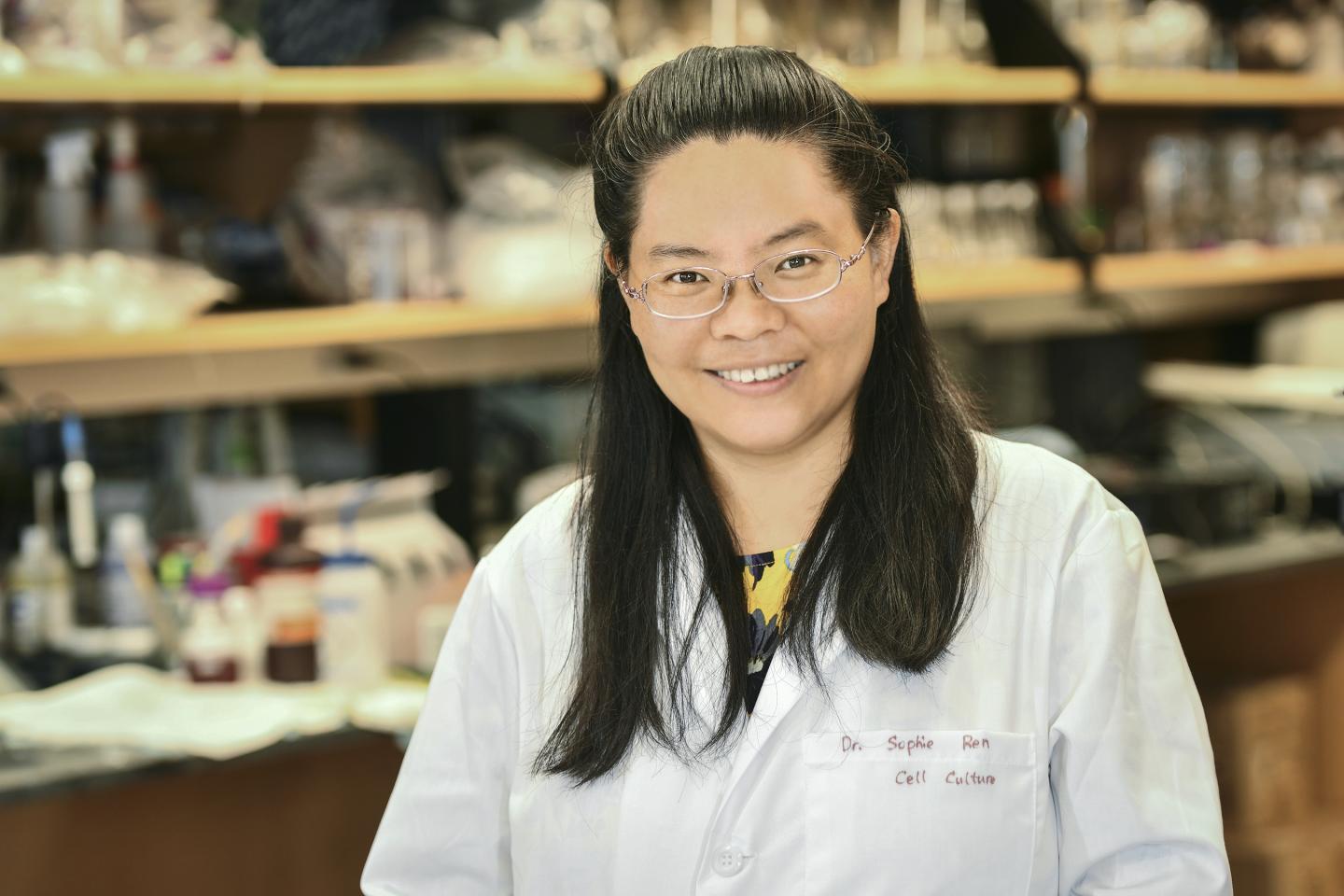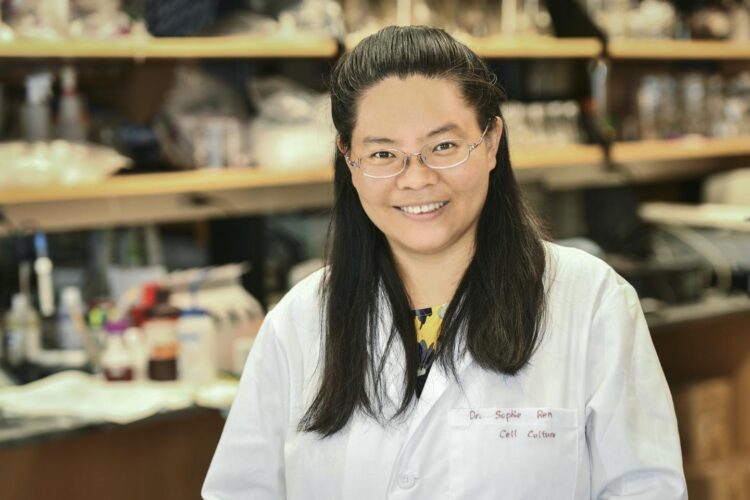
Credit: Greg Ellis/West Virginia University
Muscle weakness permeates through one side of your body and your speech slurs. It’s a stroke. And you need to be rushed to the emergency room.
Doctors replace your blood with the blood of a healthy person who’s never suffered a stroke.
This blood swap lessens damage to your brain, and any neurological deficits from the stroke are nil.
This is not mere wishful thinking. It is a potential breakthrough in stroke therapy based on mice research by West Virginia University neuroscientists.
In the study, led by Xuefang “Sophie” Ren, research assistant professor in the Department of Neuroscience, the team found that blood substitution therapy rescues the brains of mice from ischemic damage. Their article is published in Nature Communications.
“What we were able to demonstrate is that if you remove part of the blood from a subject undergoing stroke, and replace that blood from a subject that’s never had a stroke, the outcomes of that stroke are profoundly improved,” said Ren, who’s also director of the WVU Experimental Stroke Core.
The study is believed to be the first to show that blood replacement therapy leads to improved stroke outcomes in mice, a potential next step for stroke therapy in humans.
Most strokes (ischemic) occur when the blood supply to the brain is interrupted, usually by a blockage of the arteries leading to the brain.
While there is no known single medication for stroke, the only FDA-approved treatment for ischemic strokes is tPA, or tissue plasminogen activator, which dissolves the clot and improves blood flow. However, tPA typically must be administered within three hours of the stroke.
Ren’s research indicates that blood transfusions can take place beyond that limited window – up to seven hours – and still have a positive impact. Replacing 20 percent of the blood in a mouse was enough to show a profound reduction in damage to the brain. The average adult holds around one-and-a-half gallons of blood in the body.
The study’s co-authors include Heng Hu, postdoctoral fellow and Experimental Stroke Core surgeon, and James Simpkins, director of the Center for Basic & Translational Stroke Research and professor of the Department of Neuroscience.
Out with the old, in with the new
“The idea is to change the immune response that happens after stroke,” Simpkins said.
Researchers explained that following a stroke, the makeup of a patient’s blood changes, causing disruptions in the brain and how the body responds. Neutrophils, a type of white blood cell that helps lead the immune system’s response, play a role in increasing the levels of an enzyme called MMP-9, which can lead to blood-brain barrier leakage and degeneration in brain tissue.
Blood replacement therapy removes inflammatory cells and decreases neutrophils and MMP-9 levels following a stroke, the study concluded.
“The immune system doesn’t recognize much of what’s happening when there’s a stroke,” Simpkins said. “So the neutrophils go to the brain and try to clean up the damage that happens. But there’s too much in the brain and those same neutrophils release MMP-9, which then exacerbates the damage.
“What we learn is that stroke is simply not a cerebral vascular event. It’s a whole-body event. Both the brain and the body get signals that something’s going on in the brain and as the immune system responds to try to help, it actually worsens the outcome. Therefore, by removing the blood and replacing it with the blood of those that have not experienced stroke, we get good outcomes.”
Currently, blood-based therapies are emerging as treatments to combat aging and fight neurodegenerative diseases, the researchers noted.
Now, blood replacement therapy is a proven strategy that targets the pathological systemic responses to stroke, Ren said, and could reduce the mortality of stroke patients.
“Blood indeed saves our brains and lives from stroke damage,” she said.
According to the Centers for Disease Control and Prevention, more than 795,000 Americans experience a stroke each year and 140,000 die from it.
“In an ideal circumstance, a person having a stroke would show up to Ruby (Memorial) or any hospital,” Simpkins said. “They’d go through the proper protocol. We would remove their stroke blood and magically restore it with the right kind of blood that would tamp down this immune response they’re experiencing. If it works out, that’s good for all of us.”
###
For patients or loved ones seeking information on current stroke trials, contact Simpkins at 304-293-7430.
Citation: ‘Blood substitution therapy rescues the brain of mice from ischemic damage’
Media Contact
Jake Stump, Director of Research Communications
[email protected]
Original Source
https:/
Related Journal Article
http://dx.





